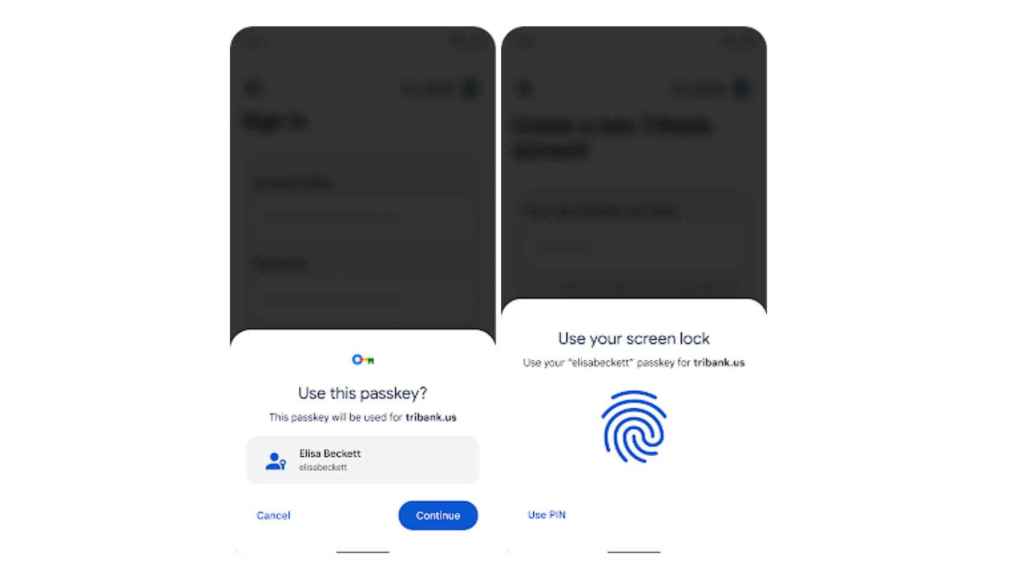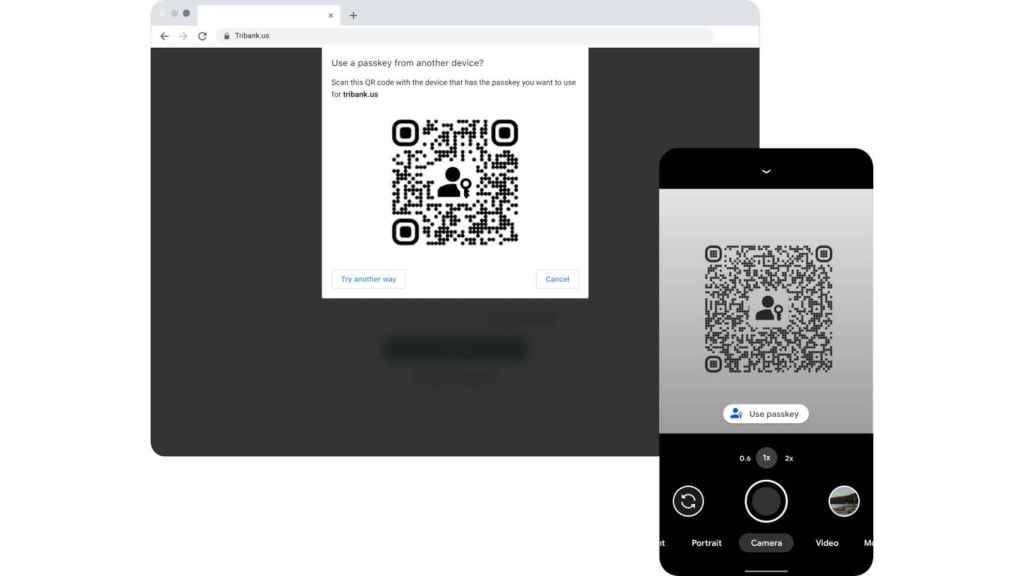We live in 2022 and we still have to deliver passwords to log in to web pages and applications; A particularly annoying thing, considering we’ve probably subscribed to dozens of different services.
[Comprueba gratis si tu contraseña ha sido filtrada o robada con Google Password Checkup]
In the end, it is normal for us to end up using the same password on multiple sites; Just what we should never do, because then a hacker who gets access to the server will suddenly have access to our entire digital life. This is evidenced by the large number of hacker attacks and password leaks that we have seen in recent years.
Google introduces the future without passwords
Today, Google showed how a passwordless authentication method, which will use an extension ., will work Biometric identification methods on our mobile phone To confirm to a website or app that we say we are. It has already been implemented in beta versions of Google Play Services and Google Chrome, with a huge launch over the next few months.
Google will allow us to create a master key associated with a fingerprint
The system involves creating a key (passkey) in our Android mobile phone, which we can associate with various identification methods, such as Fingerprint Readerfacial recognition cameras, or simply the key to unlock our mobile phone.
From now on, we can use this “passkey” to log in. Once we select the correct account, we will only have to identify our mobile phone as we wish to open it, and we will automatically log in to the web page or the application. Passkeys generated for the web service will be used for all apps and pages that use the same domain, so we won’t have to do the same process for both.
To log into an app or web, we just have to unlock the mobile
This method also works if we are on a computer; In this case, the web page will appear QR code that we can scan with mobile phone To ask us for identification. This way, at no point should we enter any password, and the website should not run the risk of storing it either.
Google compares this process to password management apps, which allow us to log in by entering the password automatically if we identify ourselves with a “master password”. This is somewhat the same, being the “master key” on our mobile phone.
To log in from the computer, we can scan the QR code
It sounds very simple although the implementation is clearly not. Many variables have been taken into account, such as, for example, what happens if we lose our mobile phone; In these cases, Google maintains a cloud backup of our Passkeys which will sync to our new mobile phone when we sign in with our Google Account.
In fact, this is not a system exclusive to Google, which has implemented only WebAuthn, a component of the web standard used throughout the industry. In fact, Google will open this app so that other apps can use it within the next year; For example, to sign in with Firefox if we don’t like Chrome.
It might interest you
Follow the topics that interest you

“Beer enthusiast. Subtly charming alcohol junkie. Wannabe internet buff. Typical pop culture lover.”



